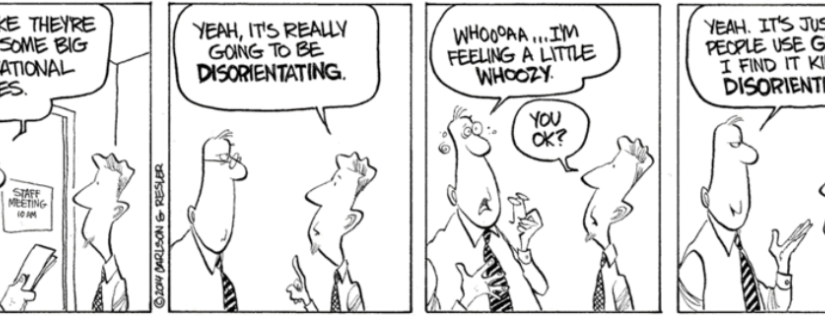The hyphen tells you that both parts of the compound refer to the same noun. Take a look at the first panel of today’s Grizzwells:
Ever hear of a time rut, especially a big one? Me neither. It’s a big-time rut.
Now if the phrase isn’t a compound adjective, you don’t need the hyphen; in fact, the hyphen would be wrong. So you might say, “I’m ready for the big time!” and you’d be correct.
Here’s another, longer example:
We got an up-to-the-minute weather report.
The weather report was right up to the minute.
Both of those are correct.

